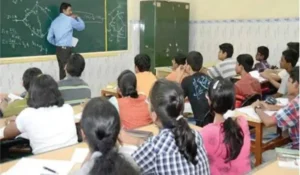What is Norovirus?
According to the World Health Organization, norovirus is a viral illness which is the most common cause of acute gastroenteritis globally with symptoms including acute onset diarrhoea and vomiting. The virus is highly contagious and spreads through contaminated water, food and surfaces.
Norovirus Infection
Norovirus is not new; it has been circulating among humans for over 50 years and is thought to be one of the primary causes of gastroenteritis (i.e stomach flu). The virus is estimated to kill 200,000 persons globally every year, with most deaths occurring among those below the age of five years and those over the age of 65 years.
The virus is capable of surviving low temperatures, and outbreaks tend to be more common during the winter and in colder countries — that is why it is sometimes referred to as “winter vomiting disease”.
A 2022 study published in the peer-reviewed journal Viruses says that norovirus infections are more frequently detected in high-income countries, with almost 40% of cases being seen in long-term care facilities. In contrast, the cases in India have mostly been detected in settings like schools and hostels, where people share food.
Symptoms of Norovirus
Signs and symptoms of norovirus infection may start suddenly and include:
- Nausea
- Vomiting
- Stomach pain or cramps
- Watery or loose diarrhea
- Feeling ill
- Low-grade fever
- Muscle pain
Signs and symptoms usually begin 12 to 48 hours after your first exposure to norovirus and last 1 to 3 days. Some people with norovirus infection may show no signs or symptoms. However, they’re still contagious and can spread the virus to others.
Norovirus Treatment
There’s no specific treatment for norovirus infection. Recovery generally depends on the health of your immune system. In most people, the illness usually resolves within a few days. It’s important to replace lost fluids. An oral rehydration solution can be used for norovirus infection.
Norovirus Cases in India
There are 685 million cases annually, of which 200 million are detected among children younger than five years. Nearly 50,000 children die every year due to diarrhoea caused by the virus.
Cases of norovirus are not as common in India as in many other places — at the same time, the recent cases in Kerala are by no means unique or one-offs. The infection has been reported in previous years as well, mainly in Southern India, especially in Kerala.
A 2016 study by Christian Medical College-Vellore that followed a birth cohort of 373 for three years, detected 1,856 diarrhoeal episodes and 147 vomiting episodes. The study said that norovirus was detected in 11.2% of the diarrhoeal episodes and 20.4% of the vomiting episodes.
The first case of Norovirus in Kerala was recorded in the Alappuzha district in June last year. In 2021, around 950 cases linked to norovirus were reported from the same locality and adjoining areas. The outbreak lasted for one-and-a-half months.
Norovirus- FAQs
Q1. What are the symptoms of Norovirus?
Norovirus leads to diarrhoea, vomiting, nausea, and abdominal pain.
Q2. Can norovirus infection cause a large-scale outbreak?
No. Even though more cases of norovirus are being detected, experts say that this is unlikely to lead to a large-scale outbreak.
Q3. How do you get Norovirus?
You can get norovirus by accidentally getting tiny particles of feces (poop) or vomit from an infected person in your mouth.



 REET Mains Answer Key 2026 Out, Download...
REET Mains Answer Key 2026 Out, Download...
 WBCSC Assistant Professor Notification 2...
WBCSC Assistant Professor Notification 2...
 MPSC Prelims Result 2026 Out at mpsc.gov...
MPSC Prelims Result 2026 Out at mpsc.gov...







